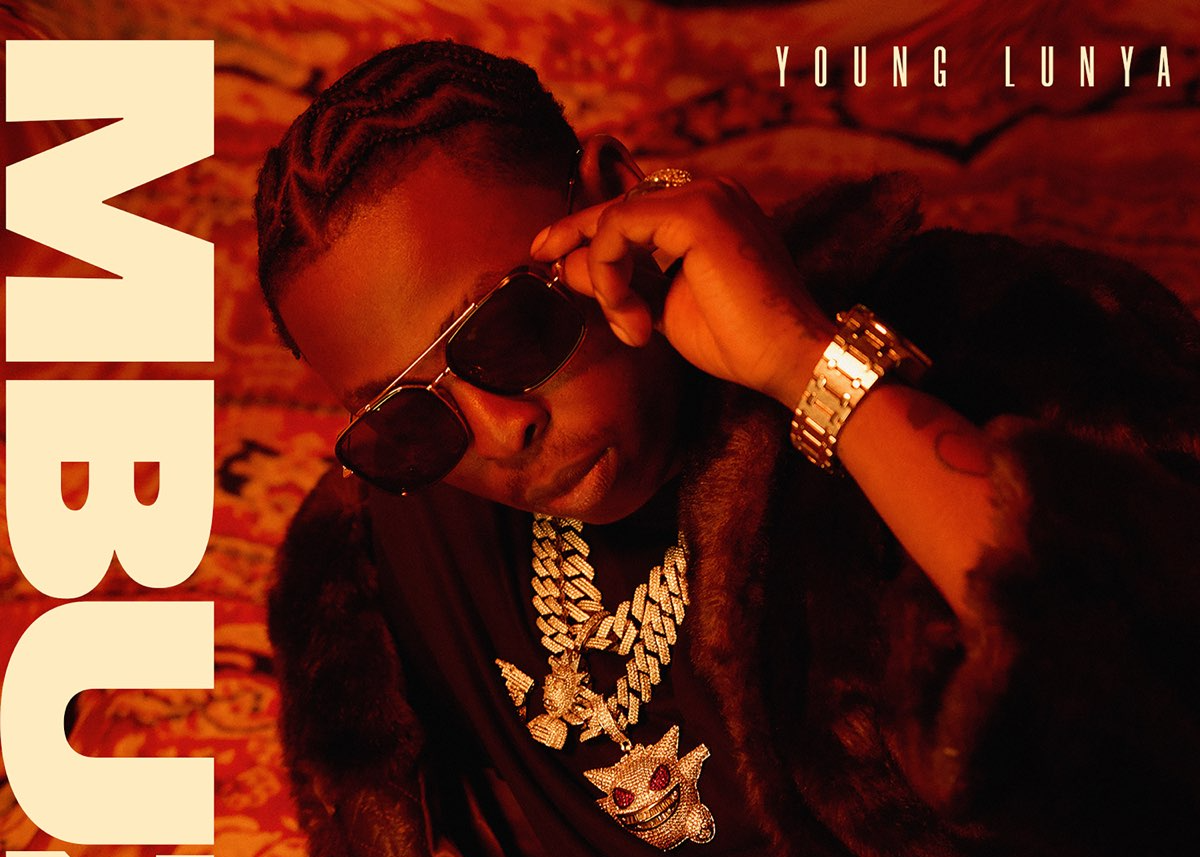Young Lunya’s greatness lies in his oration of experiences, and Mbuzi serves as a reiteration that there’s an excellence to how he always unfolds narratives about him and those around him in his music.
By Frank Njugi
Legendary American DJ, rapper, and producer, Afrika Bambaataa, is renowned for theorising Hip-Hop as a culture by referring to a rapper as a ‘postmodern Griot’. Bambaataa championed the idea that, much like the Griots of West Africa, rappers often document their daily lives through rhymes, detailing salacious rendezvous, gun-slinging joyrides, or near-death experiences that lead to some form of enlightenment.
In East Africa, one rapper is synonymous with using rhyme and rap storytelling as a portal through which the abstract realities of his fellow Tanzanians are explored. Young Lunya, a Bongo Hip-Hop artiste, is best known for his affiliation with the popular Tanzanian Hip-Hop collective, Rooftop Gang, which also functions as a record label based in Dar Es Salaam. The label includes other renowned East African rappers such as Countryboy, Joe Makini, OMG, and Moni.
Young Lunya’s reputation as a phenomenal storyteller on the mic that threads narratives unique to Bongoland, has often placed him among the best Hip-Hop artistes emerging from Tanzania and East Africa. However, this recognition has been contentious due to his relatively limited music catalog. The long wait for his debut album ended on Friday, 28th June, with the release of Mbuzi. The project, which features 11 tracks, showcases his versatility across multiple genres, including Trap, Drill, R&B, and Rhumba. Despite the varied sounds, he maintains the compelling storytelling aesthetic for which he is known.
The intro song to the album, “Mbwa Mwitu”, is a mid-tempo, emotionally driven track that immediately lures listeners into a trance, immersing them in a narration of his struggles before fame. The title, “Mbwa Mwitu”, translates to ‘wild dog’ in Swahili, symbolising Lunya’s strength, unity with those around him, and perseverance—qualities associated with wild dogs in indigenous East African cultures.
In Mbuzi, Lunya collaborates on eight songs, featuring artistes from the continent and beyond. The first of these features comes in the second track, “Natoka Na Nani?”. This Trap-inflected track boasts a fast EDM and chiptune-like beat, featuring Kenyan rapper, Khaligraph Jones. Together, they explore the questions lovers ask each other. The third track, “Nduki”, features British rapper, Dutchavelli. A Drill song infused with UK Hip-Hop argot and Caribbean plus West African expressions from Dutchavelli, it complements Lunya’s fast and repetitive Swahili bars. The collaboration creates a soundtrack of street life using hypothetical scenarios over grime-derived Roland 808 beats.

The fourth track, “She’s Mine”, features Lunya collaborating with Jay Rox, a member of the award-winning Zambian Hip-Hop group, Zone Fam. Together, they navigate a balance between vulnerability and machismo. Set to a mid-tempo flow reminiscent of contemporary R&B, the song showcases Rox delivering a groovy chorus while Lunya passionately expresses his feelings for a lover through hard-hitting verses.
Its follow-up, “Mama Wee”, sticks to this lyrical theme, but this time Lunya links up with Tanzanian singer-songwriter, Mickey Singer, and Singeli artiste, D Voice. Infused with heavy Rumba influences, the song immediately introduces Lingala melodicism and dance-infusing intricate tropical rhythms from the start.
“Watoto Wa Juzi”, the sixth track, features Tanzanian Hip-Hop/R&B recording artiste, Country Wizzy, alongside veteran Tanzanian politician, human rights activist and rapper, Sugu. The trio raps from the perspective of old folks in the rap game. The title, ‘Watoto Wa Juzi’, translates to ‘kids born just yesterday’ reflects a sense of condescension on new rappers who challenge the prowess of the veterans. The track displays the aesthetics of Chopped and screwed slow-flowing Hip-Hop.
“Noma”, the song that follows, features famed Tanzanian singer, songwriter, and music producer, Marioo. The track displays Drill music aesthetics similar to “Nduki”, with an 808 beat, bass, and rapid-fire cascading percussions as Lunya and Marioo sing on their prowess in both artistry and other aspects of life, despite the life challenges they have had.

Mbuzi’s eighth single, “Hatuna”, features Bongo Flava act, Jay Melody. The single sees Lunya this time embrace the more recent Bongo Flava norm of incorporating American sounds (in this case, Hip-Hop and R&B) with Afrobeats percussion drum rhythms. Together with Melody, the two artistes inundate the song with metaphors as they narrate the ill thoughts others may have on them despite their hard work.
The last collaboration in the album, with Tanzanian multi-instrumentalist, Abigail Chams, is on the tenth track, “Toxic”. The song displays a chilling atmosphere with a subdued melody and pressing bass synths and piano keys. Abigail and Lunya sing about the uniqueness of true love and how it is rare to find.

The remaining two songs are “Tungi” and “Fame” where Lunya goes solo. “Tungi” is a Trap single that displays heavy use of simple rhythmic yet deep 808 kick drums. Lunya explores his achievements so far in his career, a lyrical theme he maintains in the last track, “Fame” as well. “Fame” sees a belligerent delivery of Swahili lyrics over a beat that displays ripping Hi-Hats as Lunya repeats the lyric, “Hii Kitu Hatuifanyi for fame” (We don’t do this for fame) multiple times in the song.
The album’s title, Mbuzi, translates to ‘G.O.A.T’ in Swahili, which stands for ‘greatest of all time’. It’s a bold proclamation for a rapper releasing his debut album. But Young Lunya’s greatness lies in his oration of experiences, and Mbuzi serves as a reiteration that there’s an excellence to how he always unfolds narratives about him and those around him in his music.
Lyricism – 1.5
Tracklisting – 1.4
Sound Engineering – 1.6
Vocalisation – 1.4
Listening Experience – 1.5
Rating – 7.4/10
Frank Njugi is a Kenyan Writer, Culture journalist and critic who has written on the Kenyan and East African culture scene for platforms such as Debunk Media, Republic Journal, Sinema Focus, Culture Africa, The Elephant, Wakilisha Africa, The Moveee, Africa in Dialogue, Afrocritik and others. He tweets as @franknjugi.




